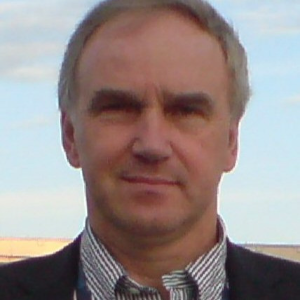Title : Molecular-scale design of novel materials for organic photovoltaics and electronics
Abstract:
The increasing demands for energy consumption worldwide and environmental issues trigger the development of green, renewable energy sources. These demands can be potentially met by organic photovoltaics (OPV), which, in its turn, relies on design of individual building blocks of OPV devices. In this context, two novel concepts of an electrode buffer layer (EBL) materials are presented. The first concepts deals with a polymeric compound PDTON, which can be utilized as a ‘universal’ electrode (either for anode or cathode) buffer layer material. Depending on the preparation procedure, PDTON forms two kinds of nanospheres, serving as building blocks and defining the morphology and properties of the respective materials, which exhibit either hole transporting or reducing electrode work function properties. The second concept deals with a redesign of ZnO, serving usually as electron transport EBL. Establishing a new preparation route, we designed an ultrathin, water-resistant and p-type-like conducting ZnO film serving as a hole transport EBL, solving, thus, the problem of the OPV device stability and making ZnO a ‘universal’ EBL material, analogous to PDTON. Finally, we worked on optimization of organic electronic devices, specifically addressing the energy level alignment between the metal electrodes and adjacent organic semiconductor. For this purpose, we designed novel monomolecular interlayers with embedded dipolar groups. As an example of potential usefulness of this novel class of films in organic electronics, their application in organic field-effect transistors was demonstrated, resulting in decrease of the contact resistance by ca. three orders of magnitude accompanied by significant improvement in the performance and stability of the devices. The high potential of these transistors was highlighted by fabrication of functional electric circuits of their basis.
Audience Take Away:
• The audience will learn the basic principles of design of organic and perovskite solar cells as well as those of thin film organic transistors.
• The audience will be informed on the basis problem of modern organic photovoltaics and electronics.
• The audience will be provided with actual examples of nanoscale/molecular design of novel materials of three different types, viz. polymers, solid state materials and monomolecular films.



